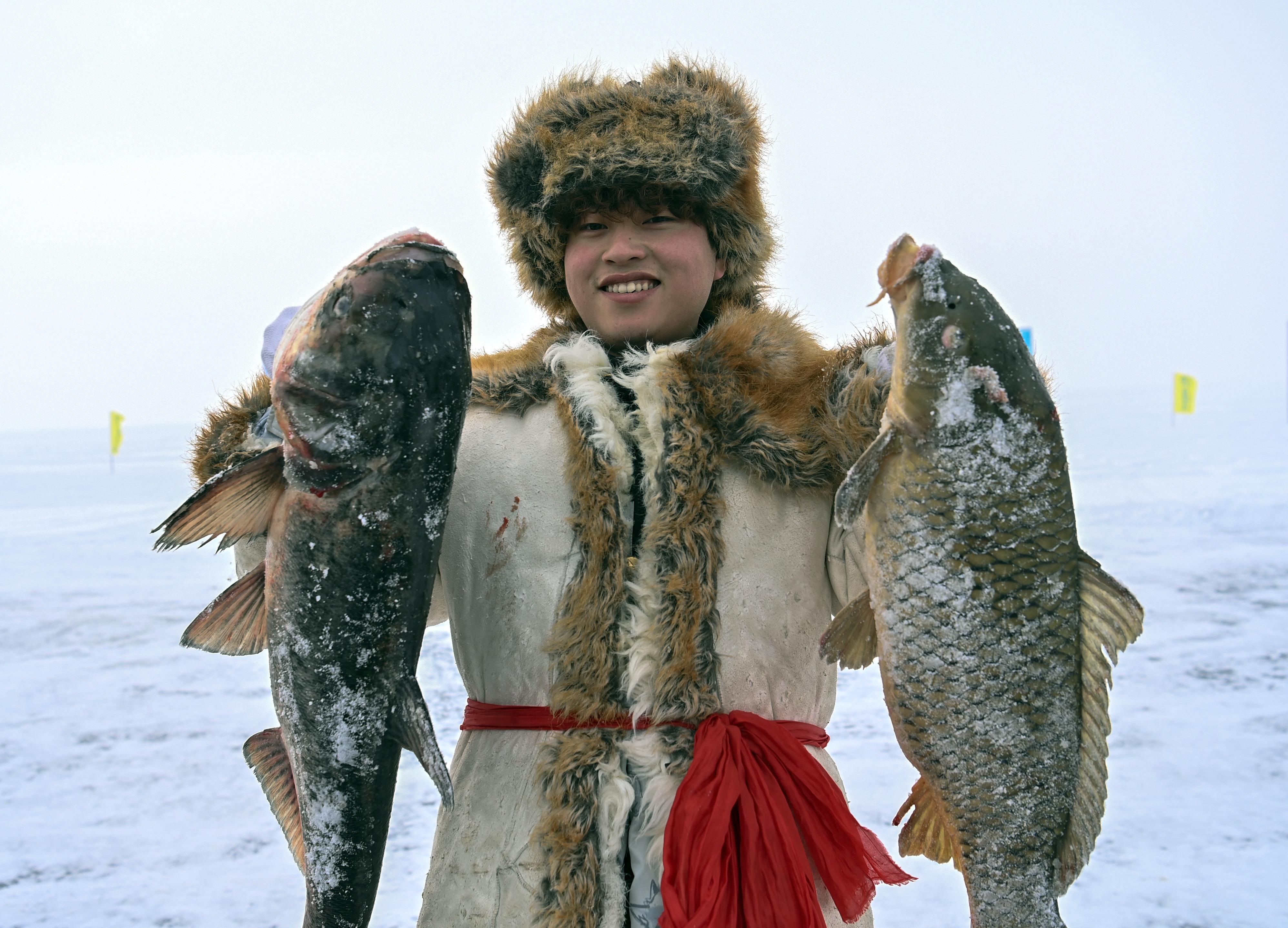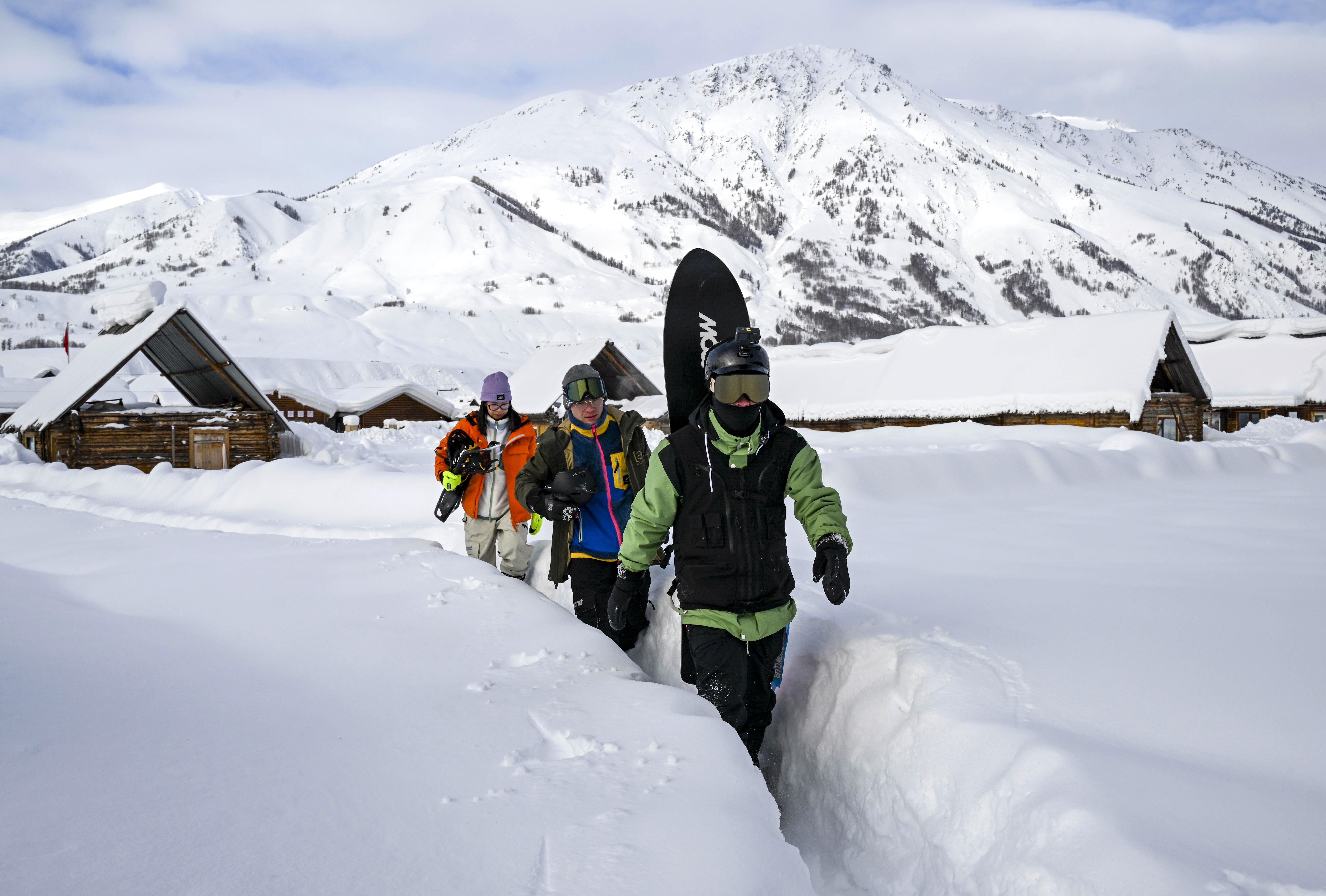 A fisherman displays his catch during a winter fishing festival at Ulungur Lake, which attracts many tourists, on Jan 7. (PHOTO / XINHUA)
A fisherman displays his catch during a winter fishing festival at Ulungur Lake, which attracts many tourists, on Jan 7. (PHOTO / XINHUA)
URUMQI — As the night closed in, Damingul Kohayip's kitchen became increasingly busy, filled with the sound of chopping, a blazing fire, and boiling water. Outside the kitchen are several traditional Kazakh-style tents where diners eagerly await the delicacies to be served.
The signature dish was a broth made with the two local specialties — freshwater fish from the nearby Ulungur Lake and lamb raised by local herdsmen, says Damingul Kohayip, who runs an agritainment business in Akwutkel village of Fuhai county, Northwest China's Xinjiang Uygur autonomous region.
Home to the largest natural fishery base in northern Xinjiang, Fuhai in Altay prefecture turned its tradition of winter fishing into a tourism festival featuring ice fishing performances, ice-and-snow sports, and other activities in 2005.
The initiative has brought vitality to the local tourism industry, especially in winter, a traditional tourism off-season. An increasing number of local farmers and herders have turned to careers in the ice-and-snow tourism sector.
Fuhai now has more than 120 farm stays, providing more than 2,000 job opportunities, says Adelbek Abaydulla, head of the county government, adding that the county is pushing for the integrated development of its animal husbandry, farming, and ice-and-snow tourism industries.
 Tourists from Guangdong province on their way to ski in a village in Altay prefecture, Xinjiang Uygur autonomous region. (PHOTO / XINHUA)
Tourists from Guangdong province on their way to ski in a village in Altay prefecture, Xinjiang Uygur autonomous region. (PHOTO / XINHUA)
Six years into the start of her business, Damingul Kohayip is embracing yet another busy winter. "Since the beginning of December, we have been receiving a greater number of food orders. These days, we even got a bit short-handed," says the 52-year-old woman.
China recently released a long-term guideline on expanding domestic demand, which highlighted boosting the income of its rural residents via measures including development of leisure agriculture, rural tourism, and a homestay economy.
Confident in the prospects of the industry, Towankisu Bulak village in Wensu county, Aksu prefecture, is also managing to ride the wave of ice-and-snow tourism by transforming its swathes of farmland into ice rinks during the down season.
In previous years, Metiniyaz Dawut, a farmer from Towankisu Bulak, did part-time work in winter, hoping to make some money, but it only came in dribs and drabs. Now, he has become a ticket seller at an ice rink and owns a barbecue stall next to it.
"I can make 500 yuan ($74) a day at the barbecue stall, plus the 2,000 yuan a month as a ticket seller," Metiniyaz Dawut says.
Other villages in Aksu also followed suit. The farmland-turned ice rinks alone created more than 3,800 job opportunities across the prefecture.
Though relatively weak in terms of ice-and-snow resources compared with its northern areas, the southern regions of Xinjiang also saw ice-and-snow resorts springing up, providing residents with more convenient and diversified winter recreation.
As ice-and-snow tourism brings more opportunities, winter is no longer a bleak season for Metiniyaz Dawut. "Our village is bustling even on chilly days," he says.


